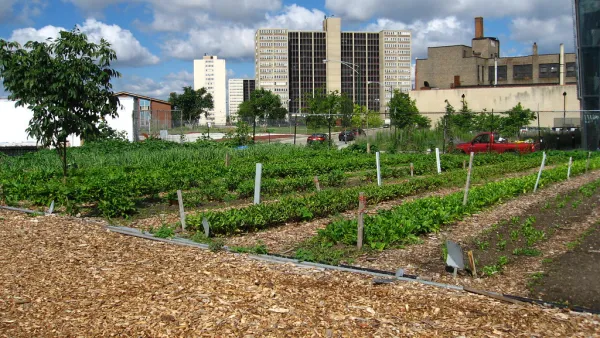In this food-focused installment of a series on "great places", Grist's Tom Philpott argues that food system as currently structured creates the opposite of great places.
Advances in the industrialization of food have meant lower prices, but also diminishing returns to local communities and lower levels of quality of life, according to Philpott.
"What have we gained from this systematic pauperization of the food-industry work force? True, food as a percentage of income is cheaper here than anywhere else on the planet; but what about quality and public health? As I've shown before, access to cheap food does not translate to higher quality of life -- in fact, quite the opposite."
FULL STORY: Great places, great food: part one

Analysis: Cybertruck Fatality Rate Far Exceeds That of Ford Pinto
The Tesla Cybertruck was recalled seven times last year.

National Parks Layoffs Will Cause Communities to Lose Billions
Thousands of essential park workers were laid off this week, just before the busy spring break season.

Retro-silient?: America’s First “Eco-burb,” The Woodlands Turns 50
A master-planned community north of Houston offers lessons on green infrastructure and resilient design, but falls short of its founder’s lofty affordability and walkability goals.

Test News Post 1
This is a summary

Analysis: Cybertruck Fatality Rate Far Exceeds That of Ford Pinto
The Tesla Cybertruck was recalled seven times last year.

Test News Headline 46
Test for the image on the front page.
Urban Design for Planners 1: Software Tools
This six-course series explores essential urban design concepts using open source software and equips planners with the tools they need to participate fully in the urban design process.
Planning for Universal Design
Learn the tools for implementing Universal Design in planning regulations.
EMC Planning Group, Inc.
Planetizen
Planetizen
Mpact (formerly Rail~Volution)
Great Falls Development Authority, Inc.
HUDs Office of Policy Development and Research
NYU Wagner Graduate School of Public Service


























